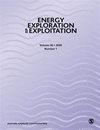用于能耗预测的长短期记忆 (LSTM)、双向 LSTM 和传统机器学习方法的比较研究
IF 1.6
4区 工程技术
Q4 ENERGY & FUELS
引用次数: 0
摘要
负责任、高效和环保的能源消耗方式对于确保现代电网的可靠性越来越重要。本研究的重点是利用时间序列分析来提高预测准确性,这对各种应用领域至关重要,因为现实世界的时间序列数据往往呈现出复杂的非线性模式。我们的方法主张利用长短期记忆(LSTM)和双向长短期记忆(Bi-LSTM)模型进行精确的时间序列预测。为了确保评估的公平性,我们将我们提出的方法与传统的神经网络、时间序列预测方法和传统的下降曲线进行了性能比较。此外,我们还实施了基于 LSTM、Bi-LSTM 和其他机器学习方法的单个模型,以进行综合评估。实验结果一致表明,在大多数数据集上,我们提出的模型在平均绝对误差(MAE)方面优于所有基准方法。针对消费者群体和准消费者群体激活率不平衡的问题,我们的预测结果显示出优于几种传统预测方法的性能,如自回归综合移动平均(ARIMA)模型和季节性自回归综合移动平均(SARIMA)模型。具体来说,在 5 月份的测试数据上,Bi-LSTM 的均方根误差 (RMSE) 分别比 LSTM、ARIMA 和 SARIMA 低 5.35%、46.08% 和 50.6%。本文章由计算机程序翻译,如有差异,请以英文原文为准。
Comparative study of long short-term memory (LSTM), bidirectional LSTM, and traditional machine learning approaches for energy consumption prediction
Responsible, efficient, and environmentally conscious energy consumption practices are increasingly essential for ensuring the reliability of the modern electricity grid. This study focuses on leveraging time series analysis to improve forecasting accuracy, crucial for various application domains where real-world time series data often exhibit complex, non-linear patterns. Our approach advocates for utilizing long short-term memory (LSTM) and bidirectional long short-term memory (Bi-LSTM) models for precise time series forecasting. To ensure a fair evaluation, we compare the performance of our proposed approach with traditional neural networks, time-series forecasting methods, and conventional decline curves. Additionally, individual models based on LSTM, Bi-LSTM, and other machine learning methods are implemented for a comprehensive assessment. Experimental results consistently demonstrate that our proposed model outperforms all benchmarking methods in terms of mean absolute error (MAE) across most datasets. Addressing the imbalance between activations by consumer and prosumer groups, our predictions show superior performance compared to several traditional forecasting methods, such as the autoregressive integrated moving average (ARIMA) model and seasonal autoregressive integrated moving average (SARIMA) model. Specifically, the root mean square error (RMSE) of Bi-LSTM is 5.35%, 46.08%, and 50.6% lower than LSTM, ARIMA, and SARIMA, respectively, on the May test data.
求助全文
通过发布文献求助,成功后即可免费获取论文全文。
去求助
来源期刊

Energy Exploration & Exploitation
工程技术-能源与燃料
CiteScore
5.40
自引率
3.70%
发文量
78
审稿时长
3.9 months
期刊介绍:
Energy Exploration & Exploitation is a peer-reviewed, open access journal that provides up-to-date, informative reviews and original articles on important issues in the exploration, exploitation, use and economics of the world’s energy resources.
 求助内容:
求助内容: 应助结果提醒方式:
应助结果提醒方式:


